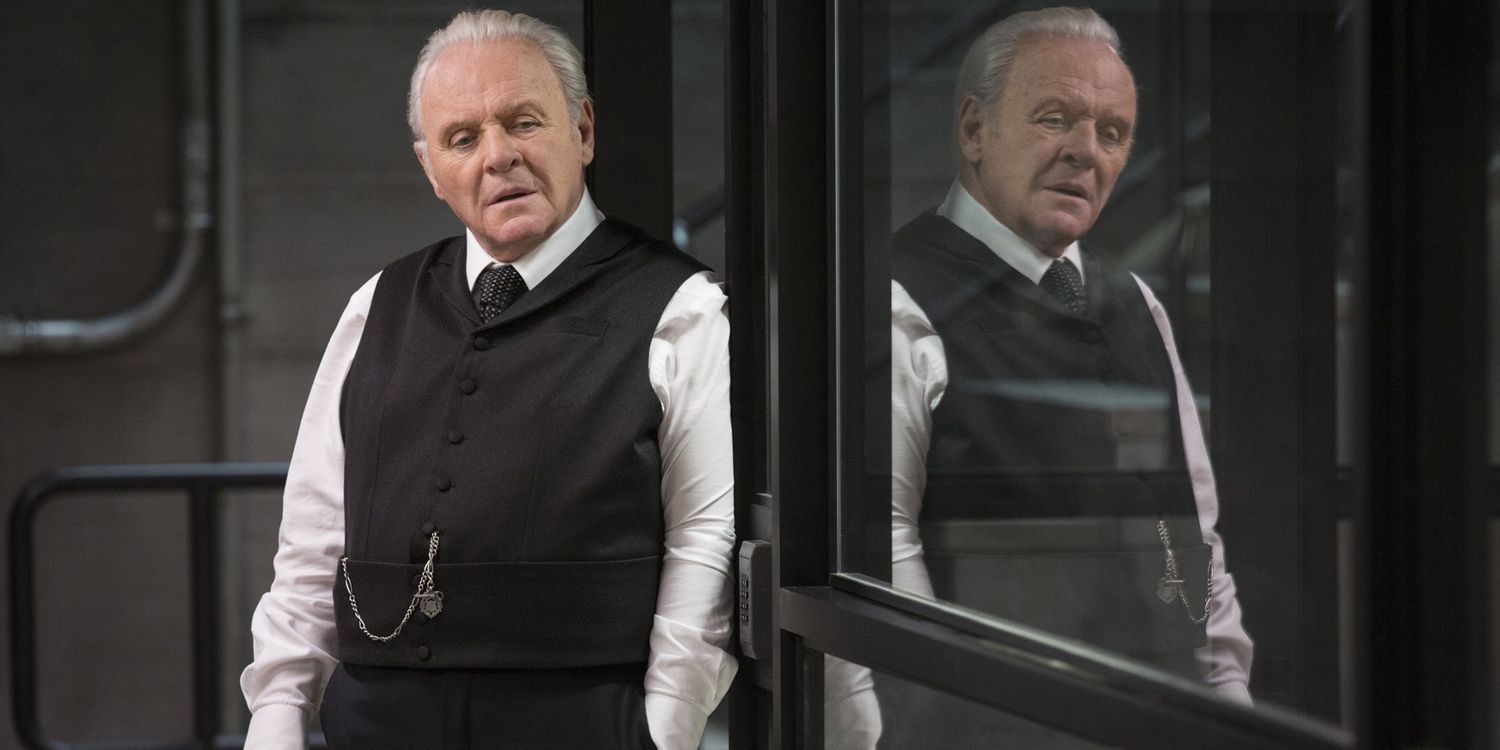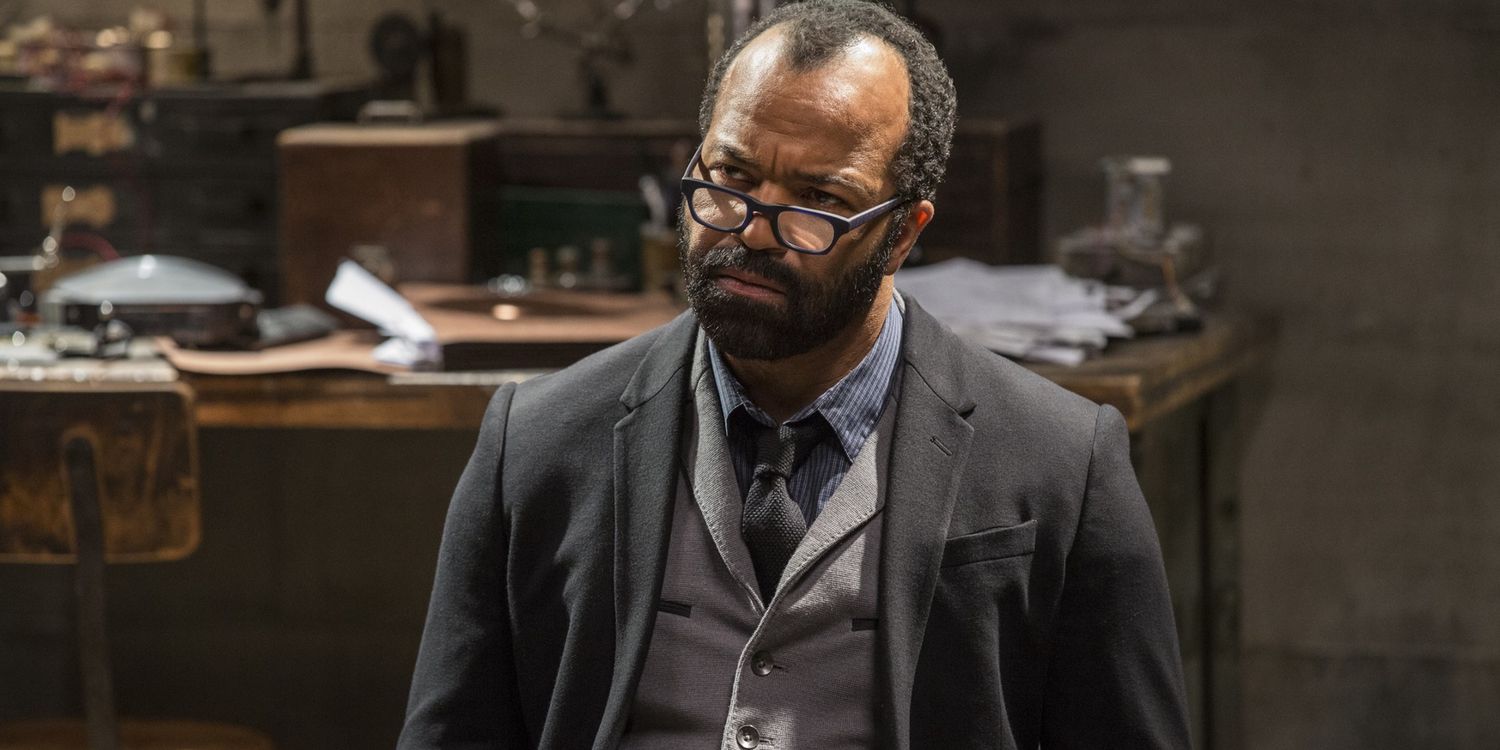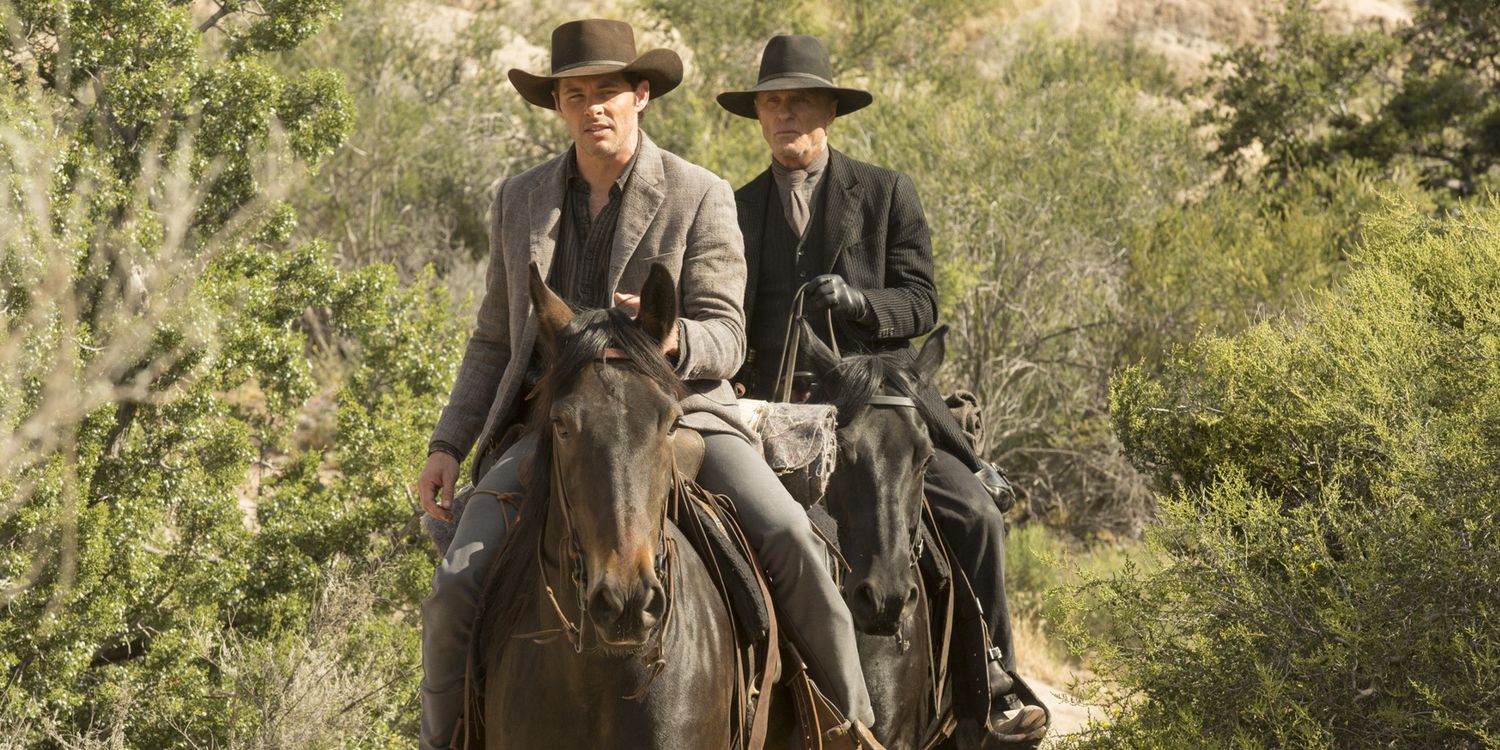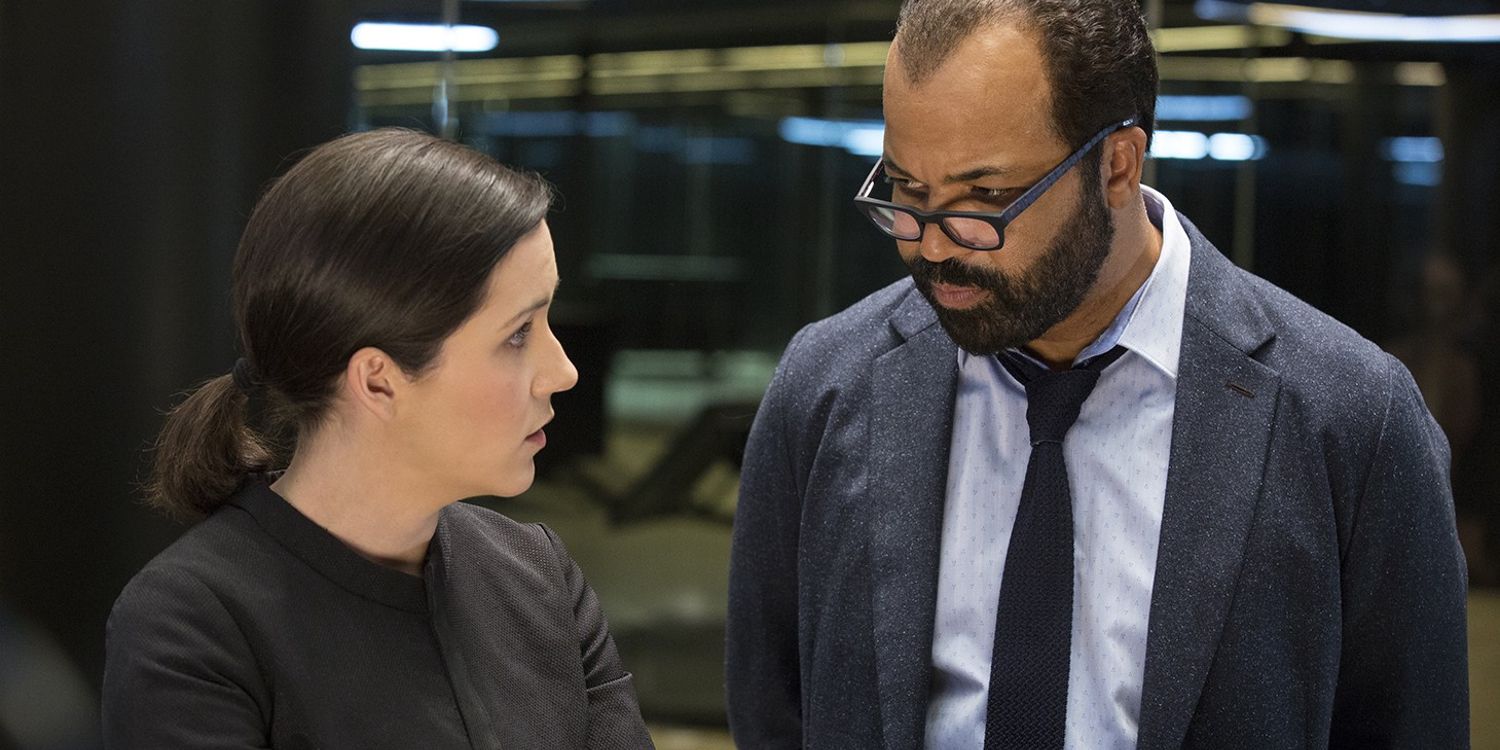It is no small gesture that a week after revealing Bernard Lowe was, in fact, an android created by Dr. Ford, Westworld would see fit to paraphrase the words of Mary Shelley when the doctor is confronted by his creation and asked why he was ordered to kill Theresa. "One man's life or death were but a small price to pay for the acquirement of the knowledge which I sought, for the dominion I should acquire" is Ford's response. It is a terribly precise reply, but given how meticulous and deliberate the series has been thus far in its first season, it is also not that much of a surprise to hear Ford quote literature to underline the specific circumstances in which he and Bernard now find themselves. Frankenstein may be exceedingly obvious in this situation, but it is by no means the first time such a device has been used to stress precisely what's going on within the show.
It has become commonplace for the series to draw such connections between the story it is telling and the stories that have had a huge influence. It's almost as though Westworld is heading the audience off at the pass, telling them "Yeah, we know," before they have a chance to pipe up and say, "Hey, that sure seems familiar." With Bernard asking Dolores to read from Through the Looking-Glass and now, as Dr. Ford seeks dominion over the exact text of Frankenstein, it's clear that Westworld has no qualms about making its points known – i.e., Dolores = Alice, and now Dr. Ford = Dr. Frankenstein, while Bernard = the Monster. Though, with that last one, it seems as though Dr. Ford might be monster enough for the both of them.
While 'Trompe L'Oeil' may have dropped a bombshell on the audience, confirming a long-held theory about one of the main characters and killing off another, it didn't really have to do the hard work as far as storytelling goes. Instead, that was left to 'Trace Decay', an episode tasked with the heavy lifting of giving the twist significance beyond being just a twist and picking up the pieces of the lives left shattered (or ended) by the revelation, and to move forward from there rather than sweep it under the rug.
But that requires one to look at Bernard's life as one capable of being shattered. After all, if Bernard is just a construct of Dr. Ford's, then it's just another fictional narrative being disrupted for the sake of the larger story about to unfold. If Bernard is perhaps something more, something that requires him to takes on the life of a person who had once lived, then the revelation that he's a Host will be processed differently. That is something 'Trace Decay' attempts to help the audience process by allowing him an opportunity to become aware his nature and to ask his creator why he was commanded to kill Theresa.
'Trace Decay' raises this question and more. Let's take a look at what else the episode has to uncover.
Who is Bernard?
Bernard's inquiry into why he would be made a murderer is key to understanding just how profound the coding in his personality is, and perhaps how thoroughly Ford and Arnold (if Arnold is a real person) was able to cement that personality in his nature. By asking the question in the first place, Bernard demonstrates a humanity and awareness of self that allows him to question a command, even though he is incapable of refusing it. It is the loophole in the bicameral mind wherein Bernard knows the voice he hears in his head is himself, and yet is still compelled to do things – even act against his nature – by an outside force.
These elements give some indication that Bernard is an incredibly sophisticated Host, that his mind has been constructed in a very specific way. But they don't necessarily answer the question of who Bernard is. Is he purely a creation of Dr. Ford, or is he the continuation of a Bernard who once lived and has since died? When he asks Ford about the nature of his reality, Bernard is given a typically Ford-ian answer – in that it's not really an answer but a broad statement about all things that somehow circles back to being about Ford.
But are Ford's efforts to skirt addressing Bernard's questions related to something else? Is there something about Bernard that his creator doesn't want him to know?
Who is Wyatt and Does it Matter?
So far, Wyatt has been a bit of a MacGuffin in terms of getting certain charaters (i.e., Hosts) motivated to take action. Teddy's been searching for the mysterious killer ever since Ford updated his backstory and revealed the born-to-lose android shared a history with Wyatt. Well, there was a little more to that in 'Trace Decay', as Teddy and the Man in Black bumped into Angela – who all but confirmed that William and the Man in Black are the same person – and she did her level best to welcome Teddy back into the fold.
But Teddy's only been a part of the Wyatt fold for as long as Dr. Ford's new narrative has needed him to be, which is to say: not long. The same goes for the existence of Wyatt, who was created to be some kind of end-all villain. Presuming Wyatt is just a creation of Dr. Ford he could be anyone in the park; a random Host who suddenly became the new character at Ford's choosing or a new model cooked up in a private lab by Ford himself. But if Wyatt is designed by Ford to deliver a narrative of Ford's creation, does it matter if the mysterious villain proves to be someone else, like, say, Dolores or Maeve, or someone we haven't met yet? Is Wyatt meant to be something other than a key to the maze, and if so will it matter if it is someone who didn't choose the role?
Is Elsie Dead?
Following the revelation about Bernard and the questions he has for Ford regarding the nature of his reality, he asks whether or not he's ever been asked to kill another human being, as he was with Theresa. Ford tells him no, but this triggers a memory he has of choking Elsie when she made the not at all risky decision to enter a creepy warehouse with nothing but a flashlight and some pluck. But in what has become a Westworld tradition, there is a lot of key information being withheld from the audience. Sure, we see Elsie lifted off her feet, struggling to breathe with Bernard's arm around her throat, but that's it. A rule that's been learned a lot in stories is: if there's no body, well, anything could happen.
Of course, Westworld gets to make this weird because the show has demonstrated time and again how many bodies its willing to drop and make a point of bringing them back because that's the framework of the show. There's a good chance Elsie has gone the way of Theresa, and those two deaths, along with Bernard programmed to be elusive, will get Stubbs sniffing around into the truth of the matter. Then again, maybe Bernard has a trick up his sleeve that he or Ford don't know about.
-
Westworld continues next Sunday with 'The Well-Tempered Clavier' @9pm on HBO.




